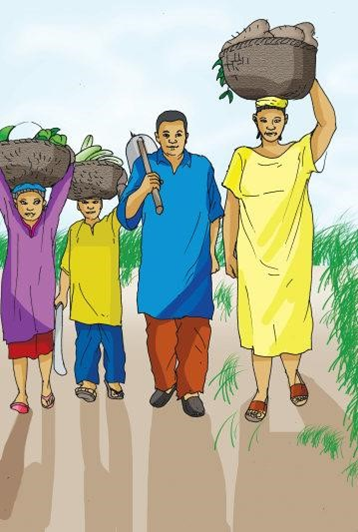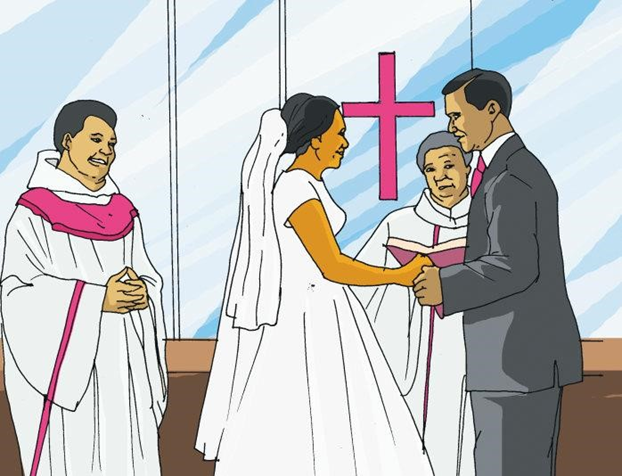Lesson Notes By Weeks and Term - Primary 6
External influences on Nigerian family life
WEEK 1
SUBJECT: SOCIAL STUDIES
TERM: 1ST TERM
CLASS: PRIMARY 6
TOPIC: External influences on Nigerian family life
BEHAVIORAL Objectives
By the end of the lesson, you will be able to:
INSTRUCTIONAL MATERIALS: A chart showing couples getting wedded.
REFERENCE MATERIALS
Scheme of work
All relevant materials
6-Years Basic Education Curriculum
Online information
BUILDING BACKGROUND/CONNECTION TO PRIOR KNOWLEDGE:
Pupils are familiar with the topic in their previous classes.
CONTENT
External influences are the lifestyles of other people, which our people now imitate and practice. These influences come mainly from Europe, the Middle East (i.e. Arab countries) and the United States of America.
In the past, the Nigerian family life was simple. Everybody had something to do for a living. In the family, the man, woman and children contributed to the upkeep of the family. Marriage practices were based on the African traditional system, while the ethnic group one belonged to determined one’s mode of dressing and lifestyle. All of these have greatly changed as a result of foreign influence, though some of the traditional practices still exist.

Our contact with foreigners has affected our family life in many ways. The following are among the factors responsible for these changes: 1 Education: The education of the child used to take place in the family. Parents and older relatives such as grandparents, uncles and aunts were the teachers. But today, there is a complete change from the traditional education to Western education as a result of foreign influences on our family life. Children are now sent to schools, away from their homes, where they are taught to read and write under the supervision and guidance of trained teachers.


Christianity, for instance, forbids the worship of gods and goddesses. Those who practise African religion are called pagans or idol worshippers by Christians and Muslims. Rather than obey the traditional priests and priestesses, Christians are expected to obey the pastor and the teachings of the Bible while the Muslims are expected to obey the Imam and the teachings of the Quran.
We now have Christian, Muslim and ordinance marriages. These types of marriage have been added to our traditional forms of marriage. Traditionally, the whole community should be involved in a marriage ceremony, but now a couple may decide to get married quietly at the registry. They may invite only a few people to the ceremony. Many people have also found a way of combining the traditional marriage ceremony with the foreign ones.
Marriage pattern: African traditional religion allows and even encourages polygamy, in which a man marries many wives and has several children. Christianity changed this as it preaches one man one wife (monogamy). As a result of this, most Christian families now practise monogamy. With this, the man has fewer children to care for. He may also have fewer problems in maintaining his family. Islam permits a man to have up to four wives.

© Lesson Notes All Rights Reserved 2023